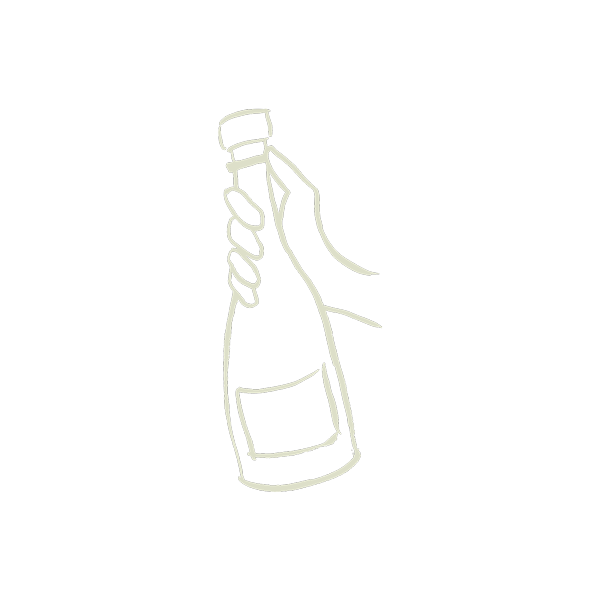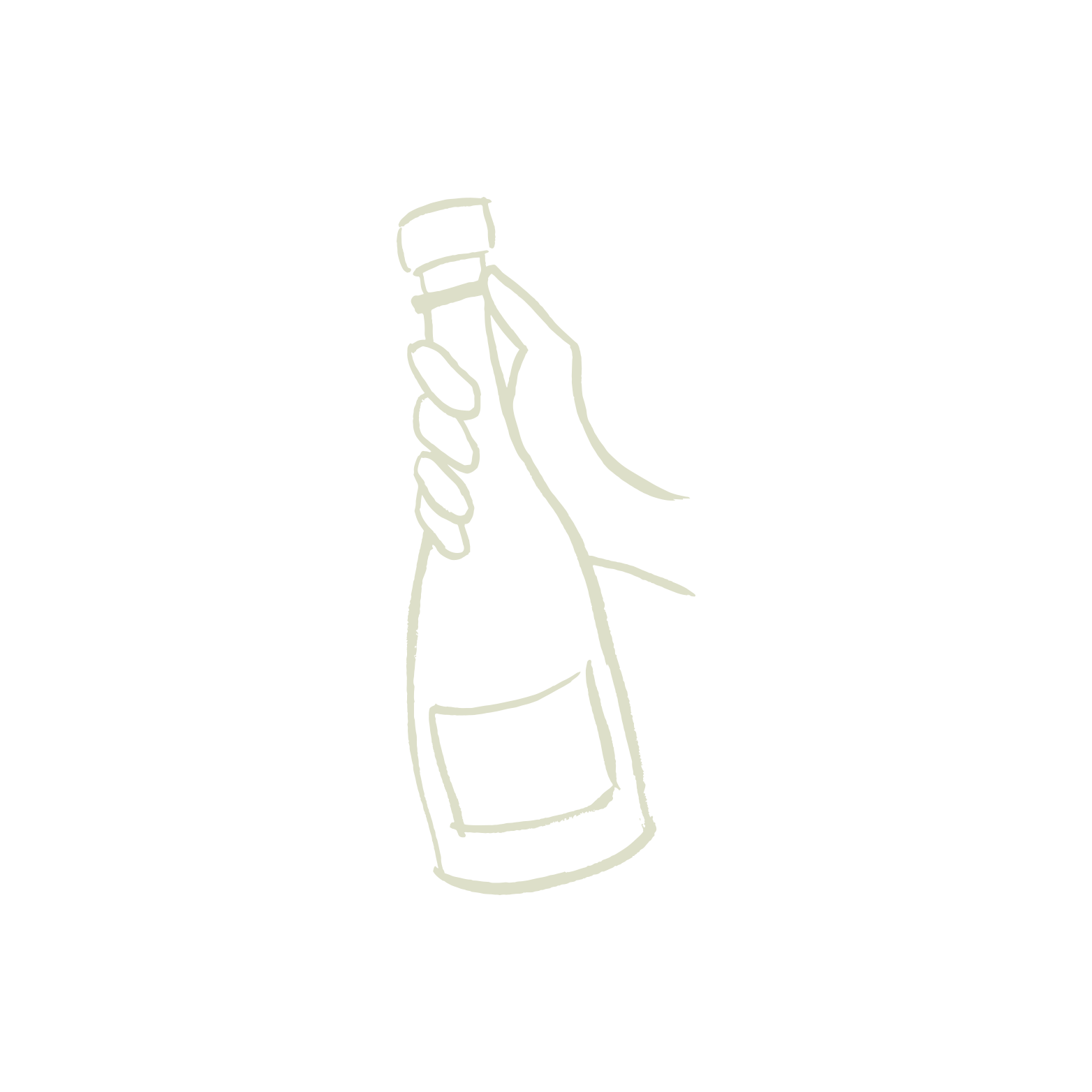How to store Champagne (if you must)
We say “drink it today,” but you can keep it fresh for future celebrations if you follow a few rules.

We love Champagne for so many reasons, but reason no. 101 is because by the time it’s in our hands, it’s perfectly aged and ready to pop.
As determined by the Champagne controlled designation of origin (AOC), all Champagne must spend a minimum of 15 months maturing sûr lie in the vigneron’s cellar before disgorgement, although fatcork producers often age their cuvées much longer than that: two to three years for non-vintage Champagne and four to 10 years for vintage Champagne.
 (Above) In March 2023, fatcork co-founder Bryan Maletis said bonjour to fatcork bubbles resting on the lees at Champagne Baillette-Prudhomme in the village of Trois-Puits in Montagne de Reims.
(Above) In March 2023, fatcork co-founder Bryan Maletis said bonjour to fatcork bubbles resting on the lees at Champagne Baillette-Prudhomme in the village of Trois-Puits in Montagne de Reims.
To give fatcork Champagne time to settle and for the dosage to become properly integrated, we ask producers to keep our bottles in their caves for an additional six months post disgorgement before they ship them to our headquarters in Seattle. We provide customers with the date of disgorgement (the act of ejecting the lees that have formed and collected in the bottleneck during the aging process), so they know exactly how long their bubbles have been under cork. Check out the Geeky Details on the fatcork bottle sitting in your fridge right now or on the tasting notes included in your latest shipment.
While we prefer drinking our bubbles early and often, you can keep your Champagne for future celebrations if you follow a few simple — but important — rules.
Rule no. 1: Keep it cool and consistent. Store the bottle either upright or on its side but always in a cool, dark place that maintains a constant temperature whether that’s your 45-degree wine fridge or your 55-degree closet in the basement.
Rule no. 2: All hail, humidity. Choose a storage location in which the humidity is high and constant, between 60 and 80 percent.
Rule no. 3: Get some air in there. Make sure your storage area is well-ventilated and devoid of strong odors.
Rule no. 4: Put an end (date) to it. Rosé Champagne with its delicate, fruit-forward profile is best enjoyed within one year of disgorgement, but there are some exceptions. Vintage-specific rosé Champagne and rosé made with pinot noir generally have enough structure to last three to five years in storage. Likewise, non-vintage Champagne, a blend of wine from the recent harvest and reserve wine, should be popped within three to five years after disgorgement, so oxidation doesn’t overwhelm the fruit flavors.

Vintage Champagne, on the other hand, can sit a bit longer. Just how long is a matter of preference. Generally, if you like your bubbles light, bright, fresh and poppy, plan to drink your vintage Champagne within two to three years of disgorgement. But if you like something rounder, softer and more subtle, letting the bottle age up to five years could achieve that desired result. Vintage bubbles are only bottled in extraordinary years, so while they’re already considered high-quality, aging them (which is essentially exposing them to oxygen over time) will often result in more opened up flavors and an expanded range, though they will lose some of their effervescence.
"Some styles of Champagne age better under cork than others. Chardonnay- and pinot noir-dominant vintages tend to age better than those with more pinot meunier, which matures faster than the other varietals on the vine. Whether or not a Champagne will age well also has a lot to do with the vigneron’s unique method of winemaking. Champagne from producers like Alexandre Lenique and Stéphane Regnault who use more modern tools and techniques like steel barrels and strict temperature control will be able to age longer under cork. Producers like Gimonnet-Oger and the Redon family go a more traditional route, aging their wine in oak barrels thereby exposing it to some amount of oxygen before it’s bottled and sealed with a cork." — Bryan Maletis, fatcork co-founder
If you like this blog post, check out our related (and equally geeky) articles “Should you age Champagne?” and “How to keep leftover Champagne fresh.”
Cheers now or forever store your peace!
Team fatcork


